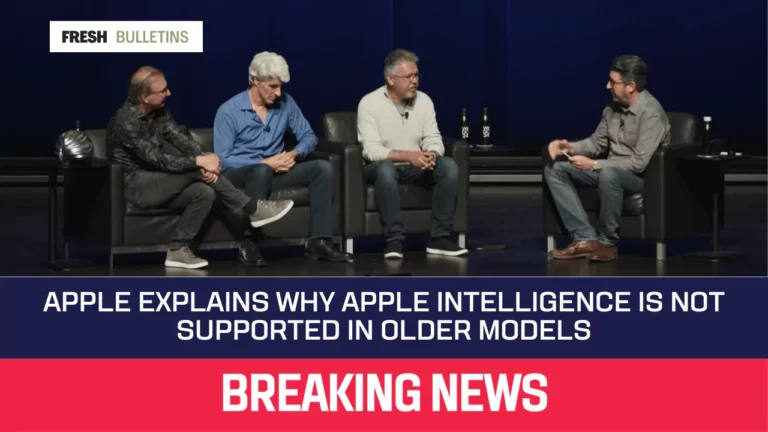Apple Leverages Google’s Chips for AI Model Training, Research Paper Reveals
Apple is now using Google’s chips to train its artificial intelligence models. This surprising move was revealed in a recent research paper from Apple. The report highlights how Apple employs Google’s Tensor Processing Units (TPUs) for this purpose. This partnership with Google shows Apple’s strategy in enhancing its AI technology.
Apple’s Use of Google Chips to Train AI Models
The research paper, titled “Apple Intelligence Foundation Language Models”, details the development of two major AI models by Apple, namely AFM-on-device and AFM-server. The AFM-on-device model is a smaller version with three billion parameters. For training this model, Apple reportedly used 2,048 of Google’s TPUv5p chips. The larger AFM-server model required 8,192 TPUv4 chips for its training. This is significant because Apple usually relies on its own hardware, the Apple Silicon chips. However, this collaboration with Google shows a shift in Apple’s strategy, at least for the development phase of these AI models.
Despite this information in the research paper, Apple has not officially commented on its use of Google’s chips. This silence raises questions about why Apple chose to work with Google at this stage. Without a comment from Apple, we can only speculate about the importance of this collaboration.
Possible Reasons for Using Google Chips
There may be several reasons why Apple decided to use Google’s chips for training its AI models. One of the primary reasons could be insufficient internal resources. Apple has a history of developing its own technology. However, creating AI models often requires significant computational power. Using existing, specialized chips like Google’s may have been an efficient way to access the necessary resources without extensive delays.
Cost-effectiveness is another possible reason. Training large language models requires a vast amount of energy and hardware. It can be more economical for Apple to utilize Google’s advanced chips rather than developing and maintaining similar capabilities independently. This approach can save time and money during the model training process.
Collaboration with tech giants is also a factor. Apple’s partnering with Google shows a willingness to work with other leading technology companies to enhance its products. The tech industry is often seen as competitive. However, companies frequently work together to develop better technology, share knowledge, and push boundaries. This collaboration can lead to innovations that benefit consumers and producers alike.
Potential Impact of This Collaboration
The use of Google’s chips in Apple’s AI development could have numerous impacts. One major consequence is the advancement of AI technology across Apple’s product range. AI technology is vital for making devices smarter. By leveraging Google’s hardware, Apple could enhance user experiences and improve the functionality of its devices. Products powered by Apple Intelligence might demonstrate improved performance in natural language processing and other AI-driven tasks.
This alliance boosts market competition. As Apple improves its AI, it may offer features that compete other tech companies. Competition can improve consumer goods and services. Company competition drives rapid technological improvements.
Lastly, there are ethical concerns regarding data sharing. When companies like Apple and Google collaborate, there is the potential for data exchange. Apple has positioned itself as a leader in privacy, ensuring user data remains protected. Concerns arise when AI models require large datasets to train effectively. How these companies handle sensitive data during collaboration will affect consumer trust. If not managed properly, this can lead to fears about data misuse, privacy, and security.
Conclusion
Apple’s decision to leverage Google’s chips for AI model training marks a notable shift in strategy. The collaboration highlights the significance of alliances in the tech industry, demonstrating how companies can benefit from each other’s strengths. As Apple continues to develop its AI capabilities using Google’s Tensor Processing Units, we may see significant advancements in technology. However, this partnership also brings forth challenges and ethical concerns that must be addressed diligently. The future of AI in Apple products looks promising, given this collaboration, but the implications for privacy and competition will require careful consideration.







